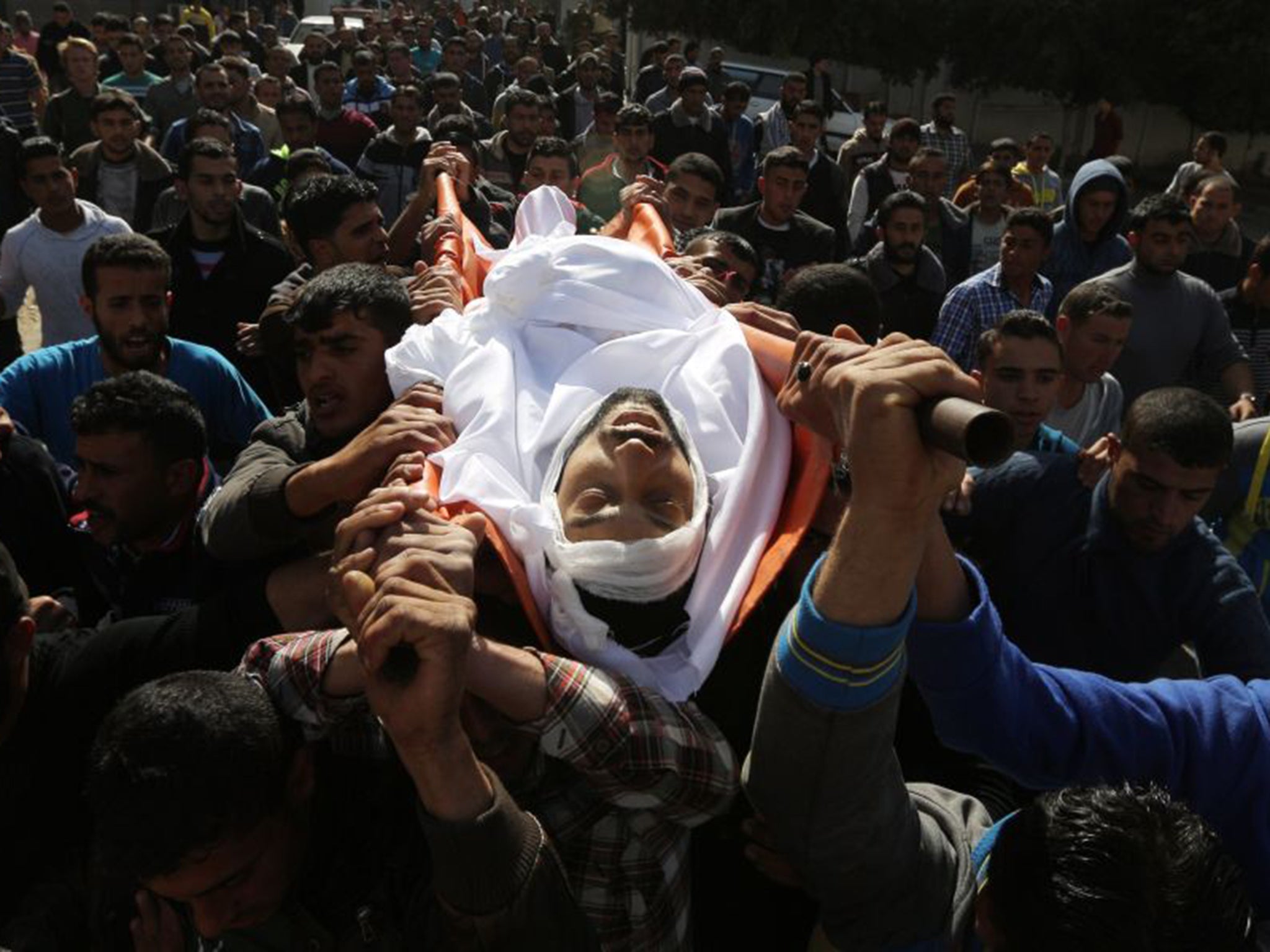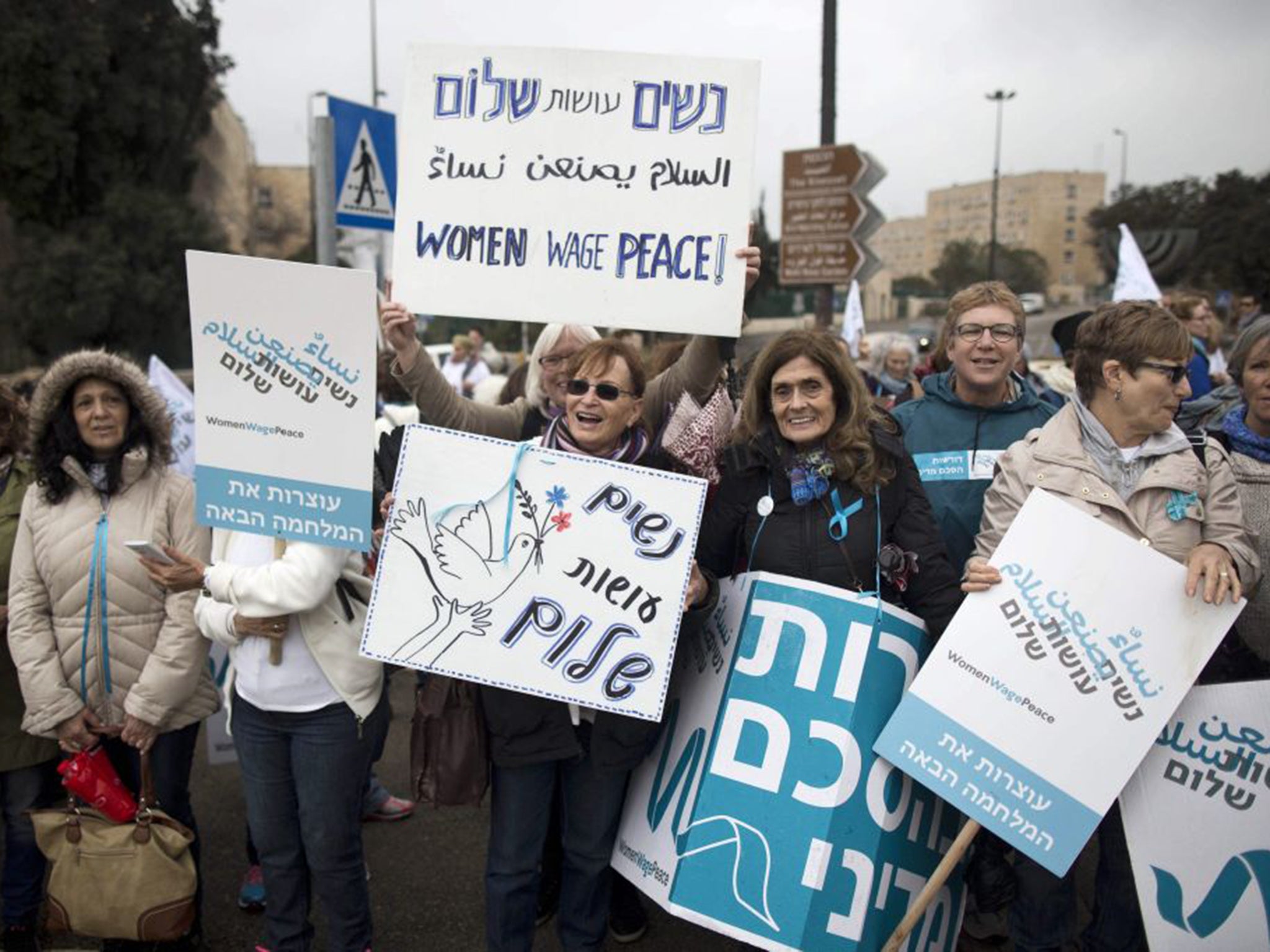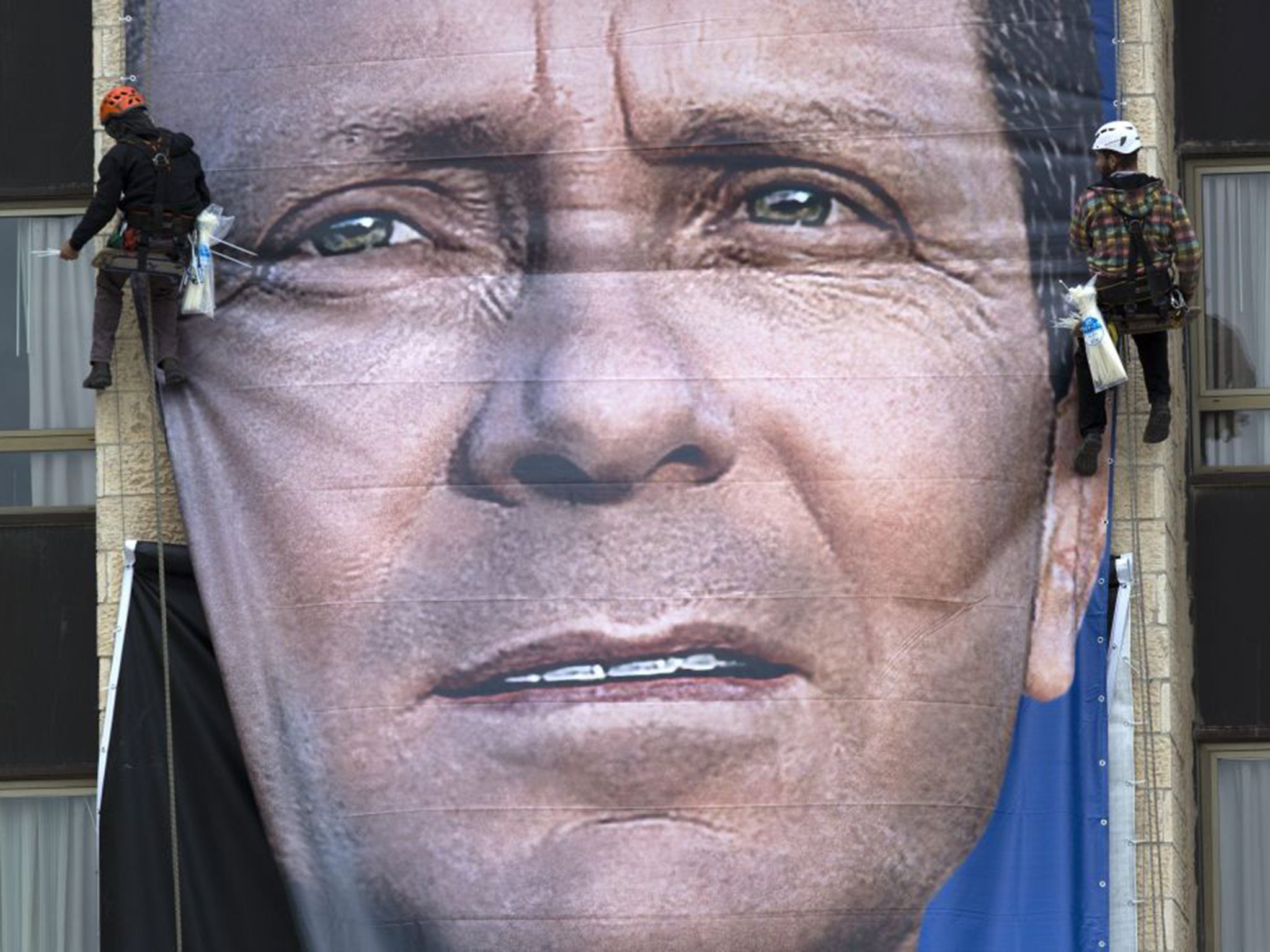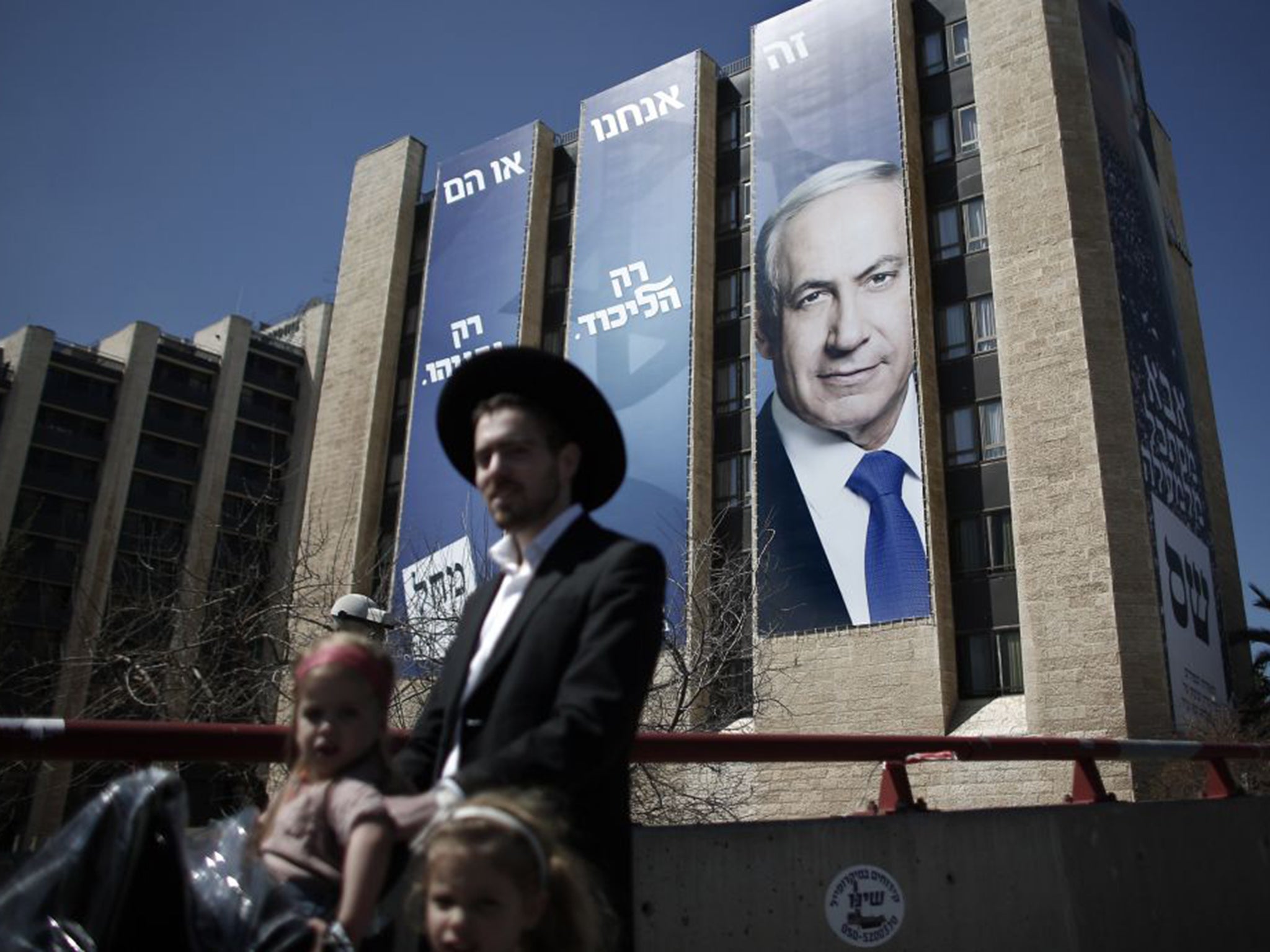Israel election: New women's group demands candidates address the issue of peace
The movement was started by several women driven to despair by last summer's conflict in Gaza

Your support helps us to tell the story
From reproductive rights to climate change to Big Tech, The Independent is on the ground when the story is developing. Whether it's investigating the financials of Elon Musk's pro-Trump PAC or producing our latest documentary, 'The A Word', which shines a light on the American women fighting for reproductive rights, we know how important it is to parse out the facts from the messaging.
At such a critical moment in US history, we need reporters on the ground. Your donation allows us to keep sending journalists to speak to both sides of the story.
The Independent is trusted by Americans across the entire political spectrum. And unlike many other quality news outlets, we choose not to lock Americans out of our reporting and analysis with paywalls. We believe quality journalism should be available to everyone, paid for by those who can afford it.
Your support makes all the difference.With Prime Minister Benjamin Netanyahu insisting that there is no Palestinian partner ready to create it, and his challenger, Isaac Herzog, choosing what he says very carefully, the word shalom, or peace, has been largely absent during the campaigning for the Israeli general election to be held next Tuesday.
But a new and growing grass-roots organisation, Women Wage Peace, which counts thousands of members from all over Israel, is struggling to push peace on to the agenda. It is calling on voters to choose candidates who will work towards a peace agreement with the Palestinians, which it thinks is both possible and essential.
“We want to change the dialogue, to have a more hopeful dialogue putting peace at the top of our priority list because we believe it’s not just a geopolitical necessity. It’s an internal necessity for Israel,” said Yael Elad, chief financial officer at a Tel Aviv venture capital fund, who is the group’s spokeswoman. “For Israel to achieve social, educational and health-related targets, we have to have a peace agreement in place,” she added.

The movement was started by several women driven to despair by last summer’s conflict in Gaza. The 50-day conflict left more than 2,000 Palestinians dead, the vast majority of them civilians, and thousands more injured. On the Israeli side, more than 60 soldiers lost their lives, as well as a number of civilians.
The group has taken off through parlour meetings and social media. Its activists have shifted into high gear for the election, fanning out at some 40 street junctions every Friday to press the message to voters. And almost every evening, Women Wage Peace’s “election patrols” attend candidates’ speeches, lobbying voters and challenging the candidates to voice their views about a peace agreement.
They have their work cut out for them in a society in which peace became a dirty word after the unravelling of the 1993 Oslo Agreement and subsequent Palestinian suicide bombings, seen by Israelis as proof that there was no partner to create peace. Mr Herzog, the leader of the Israeli Labour Party, believes that speaking of peace harms his election prospects and prefers to use the word “separation’’ when talking about what he has in mind with the Palestinians.
In the party’s effort to topple Mr Netanyahu in a close election, Mr Herzog’s Zionist Union candidate list was drawing on ex-generals and Meir Dagan, the former head of Israel’s intelligence agency Mossad, as the keynote speakers in a mass rally scheduled for last night.
Mr Herzog’s bloc is formed from an alliance between Labour and Hatnua, led by Tzipi Livni, a former foreign minister. Mr Herzog and Mr Netanyahu are anxious to avoid last-minute mistakes, with polls showing this to be a still undecided contest. According to the latest surveys, the Zionist Union could win marginally more seats than Mr Netanyahu. But it will still be up to Israeli President Reuven Rivlin to decide which leader is best placed to form a ruling coalition.
There is also the issue that violence never seems far away. On Friday, a Palestinian rammed his car into a group of Israeli pedestrians near a border police station in east Jerusalem, injuring four officers and a bystander, Israeli police said. Yesterday there were reports that the Israeli navy had opened fire on boats off the coast of the Gaza Strip, killing one Palestinian fisherman, according to Gaza hospital officials. Citing security concerns, Israel keeps a naval blockade on Gaza, and has designated a six-nautical-mile fishing zone off the enclave’s coast.

An Israeli military spokeswoman said four vessels had strayed from the fishing zone, and that the Israeli army opened fire after the boats did not heed calls to halt.
But Women Waging Peace knows that something must be done, and it rejects the no-partner view espoused by the current government. “If we make an effort there will be someone to talk to. We have to try,’’ said Maayan Sharvit-Elyasim, a steering committee member and mother of a 20-year-old soldier. If Catholics and Protestants in Northern Ireland could settle their differences after hundreds of years of conflict, surely Israelis and Palestinians can do the same, she asserts.
Three thousand women from the group rallied near Israel’s parliament on Wednesday against Mr Netanyahu’s speech to the United States Congress on Tuesday. The women say they want to keep the focus on the Palestinian issue, not Mr Netanyahu’s favourite subject of Iran and the nuclear deal that a number of world powers are trying to broker, which was the theme that formed the bulk of his address. Some of those on the march sang the “Song of Peace”, the anthem Prime Minister Yitzhak Rabin sang on a 1995 peace rally minutes before he was assassinated.

The women in the group say they are not willing to stand by and leave Israel’s discourse to those with a militaristic world view. “We see that every time there is a conflict: the television stations get filled with former generals, and women are never there,’’ Ms Elad said.
“They disappear completely when it comes to discussing these issues. We are demanding to be involved. The first thing that we bring to the discussion is that the army isn’t our point of reference. Our point of reference is our lives and our kids’ lives and their future.’’
The group’s real work will start after the election, Ms Elad says, when it becomes clear who will be in charge. “It will be time for us to rally and be in their faces day in and day out. I can imagine standing in front of their homes every morning. We have 7,000 women who can do this. We want to make sure they wake in the morning and go to bed in the evening thinking about how to bring this conflict to an end.’’
Join our commenting forum
Join thought-provoking conversations, follow other Independent readers and see their replies
Comments